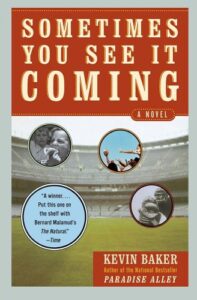Kevin Baker: The New York Game: Baseball and the Rise of a New City
July 30, 2024 by David
Filed under Non-Fiction, WritersCast
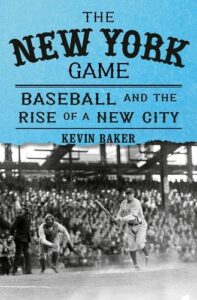 The New York Game: Baseball and the Rise of a New City — Kevin Baker — Knopf Publishing – 9780375421839 – Hardcover — 528 pages — $35.00 — March 5, 2024 — ebook versions available at lower prices
The New York Game: Baseball and the Rise of a New City — Kevin Baker — Knopf Publishing – 9780375421839 – Hardcover — 528 pages — $35.00 — March 5, 2024 — ebook versions available at lower prices
I am guessing that anyone who knows me well will be aware that baseball has been a lifelong passion. I’ve written baseball poetry and stories, interviewed former players, and talked to writers about baseball many times over the years. I’ve read hundreds of baseball books, and published a few as well. Among the legion of great baseball novels, Kevin Baker’s Sometimes You See it Coming is one of my all time favorites. And of all the nonfiction baseball books I’ve come across, his newest book, The New York Game is among the very best.
In this The New York Game, Kevin tells the history of America’s greatest city through the lens of America’s greatest game. He is a masterful story teller, weaving together multiple strands of cultural, political, economic, and geographic history to create a brilliant tapestry from the beginning era that baseball was invented in the New York City environs, through its glory years, ending with World War II (and leaving us waiting for the sequel that will cover the 80 years since).
One element that sets this book apart from so many other books about baseball history is that Baker seamlessly writes about the often overlooked stories of Black and Hispanic baseball players and particularly the crucial importance of the Negro Leagues in American sports history. Race and sports reflect back all the flaws and foibles of the American experiment in sometimes painful and jarring ways. Understanding (and facing) how baseball – its ownership, management, players, and fans – dealt with race and racialism over the course of American history is crucial to understanding who we are today.
Even readers who think they know all about New York City baseball will learn from this book, and will enjoy Baker’s stories about the game, always cast in his fast-moving, highly literate style. There are so many stories, vignettes, portraits and analyses, it is impossible to list them all, not just the already famous, but many figures even those of us who have studied baseball or grew up in New York will have heard of before.
I’ve interviewed Kevin twice before for Writerscast, including for his excellent socio-political economic book about modern New York City, The Fall of a Great American City. (co-published by City Point Press and Harper’s Magazine in 2019).
I cannot recommend this new book more highly, even for those who do not identify as baseball fans. Not only will you gain a deeper understanding of the history of our largest and most dynamic city, you’ll be entertained throughout by a master storyteller. It’s one of those rare books you will have trouble putting down once you start reading.
Writerscast interview with Kevin about The Fall of a Great American City
Podcast: Play in new window | Download
George Gmelch: Inside Pitch
March 28, 2013 by David
Filed under Non-Fiction, WritersCast
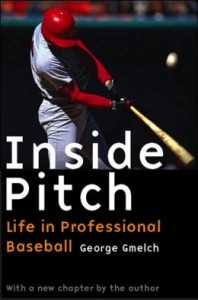 978-0803271289 – University of Nebraska Press Bison Books – paperback – $16 (no ebook edition available!)
978-0803271289 – University of Nebraska Press Bison Books – paperback – $16 (no ebook edition available!)
Given my longstanding interest in baseball and an early background in anthropology, it’s kind of surprising to me that I missed knowing about the work of George Gmelch until very recently.
I ran across George’s books in some random searching having to do with baseball, and happily was able to get an introduction to him through my anthropologist brother. When he was young, George was a baseball player, and a pretty good one. Like so many others, he played for several years in the lower minor leagues, but never made it to the Major Leagues. It’s possible he quit too early, but it’s also likely that he made the right choice to quit baseball and go back to school (and got his Ph.D. at UC Santa Barbara) and then became an accomplished cultural anthropologist, studying tourism, sport cultures, and migration. He has worked among and written about Irish Travellers, English Gypsies, return migrants in Ireland and Newfoundland, commercial fishermen, Alaska natives, and Caribbean villagers and tourism workers, and has taught at several universities.
Given his training as an anthropologist and his unusual background as a minor league baseball player, it made sense that he could study baseball players, perhaps in ways that non-players could never manage. So some 30 years after his playing days ended, George arranged with friends still in the game to spend time with major and minor league players as an observer. Over the course of five years, he interviewed more than 100 players, coaches and managers, and got to experience and document the inner workings and social milieu of modern day baseball as it is lived by its participants.
Inside Pitch: Life in Professional Baseball is nothing like a typical anthropological ethnography. There’s a great deal of George’s personal story throughout, and it’s neither dry nor academic. But the observational techniques and abilities of the trained anthropologist are brought to bear, as George ruminates on the differences between modern players and those of his own era.
It’s unusual for us to get an insider’s view of the game that gets past the public relations walls that the institution and all its participants have build around it to protect the image of the game. Minor league players, though rarely interested in George’s own experience as a player, were always willing to tell him about their experiences, and even normally wary major leaguers were willing to talk to him once he explained that he was a former player doing anthropology, not a reporter looking for an angle.
So if you love baseball, Inside Pitch is a terrific read, and will enrich your understanding of what it is really like to play professional baseball. I was especially taken with the writing about and the interviews with players that illustrated the psychological struggles that players go through. I recently read the excellent RA Dickey memoir, Wherever I Wind Up: My Quest for Truth, Authenticity, and the Perfect Knuckleball, which is a terrific complement to Inside Pitch, as so much of Dickey’s story is about how he managed to conquer his personal demons and harness his inner being to finally become a successful pitcher after years of struggle. Gmelch both give us many quotes of players talking about their mental struggles and writes about these issues perceptively.
Baseball is generally considered a cerebral game because of its complexity and pace. That, and the fact that there are so many games in a very long season, create a very challenging emotional and psychological environment for players. We rarely, if ever, get to see close up what that can mean for them. And because the vast majority of players who play in the minor leagues never make it to the majors or only get there for a brief time, reading about their struggles can change the way you think about the players who do get to the majors and stay there for any length of time. They really do have to be special, lucky and to have developed a solid psyche in order to be able to survive and thrive in such a difficult and fraught environment.
George Gmelch has written eleven books and now teaches at the University of San Francisco, where he co-directs the anthropology program. I’ve now got an earlier book of his, In the Ballpark: The Working Lives of Baseball People on my reading list as well. Talking to him about his experiences as a player, anthropologist and writer was a terrific pleasure for me.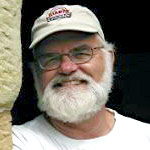
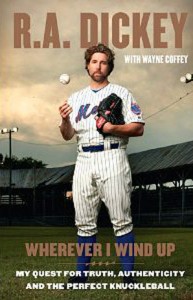 Alert to listeners: we had such a good conversation that I lost track of time, and this is a longer than average podcast at 54 minutes.
Alert to listeners: we had such a good conversation that I lost track of time, and this is a longer than average podcast at 54 minutes.
Podcast: Play in new window | Download
Jason Turbow and Michael Duca: The Baseball Codes
July 22, 2010 by David
Filed under Non-Fiction, WritersCast
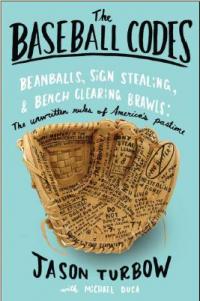 978-0375424694 – Random House – $25.00 (e-book editions also available at $9.99)
978-0375424694 – Random House – $25.00 (e-book editions also available at $9.99)
The subtitle of this book is long but tells you why almost any baseball fan (and some cultural anthropologists and sociologists) will be interested in this book: “Beanballs, Sign Stealing, & Bench Clearing Brawls: The Unwritten Rules of America’s Pastime.”
This is both an entertaining and fun read. It will work for serious fans of course, but just as well for more desultory followers of baseball, and really even readers who only have a passing interest in baseball. The basic notion is that baseball has had unwritten codes of conduct covering all sorts of on and off field behavior, probably for as long as the game as been played professionally. In years past, it would have been unusual for anyone outside of the closed professional baseball fraternity and maybe the regular baseball writers and broadcasters to know the details of how “the code” works.
The code is really a set of home grown rules, in some instances expressing sportsmanship, in other instances expressing the underlying social (and economic) values between players and teams. It is really fascinating to think about just how comprehensive human beings are in creating ad hoc systems of governance. The formal rules of the game, enforced by team owners, leagues and ultimately the Commissioner of baseball are written down and codified, as are the contracts between players and teams. The day to day rules of behavior among players, of course, are unwritten, passed on from one generation to the next, and highly subject to interpretation, ongoing disagreement and of course the change in social mores and behavior in the overall culture as well.
To write this book, Turbow and Duca spent a great deal of time talking with former and current players, coaches and managers. They are able to report back about the code, past and present, but the richness of the book lies in their many anecdotal examples of its application. And of course how the code has actually changed over the years as baseball and its players have changed is another theme of the book.
The Baseball Codes express and amplify not only the great Game of Baseball itself, but the richness of human culture and its history. This book was alot of fun for me to read, I knew some of the stories, but there were many more that were new to me, or which, by hearing the players talk about them, enabled me to understand much better what I knew about some of the interesting events in baseball history. Talking to co-author Jason Turbow was also great fun. He’s a passionate observer of the sport of baseball, and knows how to tell great stories. It’s the middle of the 2010 baseball season as this interview is posted, and a great time to listen to some baseball lore. And the Jason maintains an active blog that will keep fans up to date on current code behavior, also fun and recommended.
Podcast: Play in new window | Download

